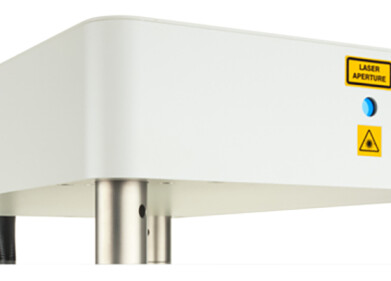-
 Advanced genetics technologies could show the level of cancerous cells present in a patient
Advanced genetics technologies could show the level of cancerous cells present in a patient
Microscopy & Microtechniques
Advanced genetics technologies could estimate the treatment outcome for patients with some aggressive cancers
Jul 10 2013
Patient outcomes following treatment for certain cancers could be predicted with the use of advanced genetics technologies, according to a new study. Evidence has been published in Blood, the Journal of the American Society of Hematology (ASH), that suggests a patient's outcome could be predicted and the treatment course itself for aggressive acute lymphocytic leukaemia (ALL) could be informed through the use of genetics technologies that monitor for cancer cells.
Of the adult patients that suffer from ALL around 25 to 30 per cent suffer from Philadelphia chromosome-positive (Ph+) ALL. This form of the disease progresses quickly due to a genetic abnormality that the patient has, which is generally an indicator of a very poor prognosis. Many adults suffering from Ph+ ALL are treated with an allogeneic stem cell transplant following their first remission. This involves extracting stem cells from a family member or a donor and transplanting them into the patient in an attempt to stop the cancer returning; however, there are often a number of negative side effects to this procedure.
It has been suggested that the use of stem cell transplantation in Ph+ ALL patients may not be necessary following research conducted after the introduction of the cancer treatment drugs, tyrosine kinase inhibitors. These drugs have improved the survival rates of some Ph+ ALL patients, but doctors are still unable to accurately assess whether a patient may need to undergo stem cell transplantation in addition to using these drugs in order to completely eradicate the disease.
This aggressive form of cancer often remains in the patient's body even after treatment, but several new studies have suggested that by monitoring the level of remaining cancerous cells - called minimal residual disease (MRD) - a relapse may be avoided. Many doctors have begun to use real-time quantitative polymerase chain reaction (RQ-PCR) and multi-parameter flow cytometry (MFC) in order to track the progression of any remaining cancer cells.
A recent decade-long study, led by Doctor Farhad Ravandi from the University of Texas MD Anderson Cancer Center in Houston, has found that using both MFC and RQ-PCR technologies to monitor MRD in remission patients is quite successful in predicting the progression of the disease and patient outcomes.
Digital Edition
International Labmate Buyers' Guide 2024/25
June 2024
Buyers' Guide featuring: Product Listings & Manufacturers Directory Chromatography Articles - Enhancing HPLC Field Service with fast-response, non-invasive flowmeters - Digital transformatio...
View all digital editions
Events
Jul 03 2024 Gandhinagar, India
Jul 07 2024 Dublin, Ireland
Jul 20 2024 Denver, CO, USA
Jul 21 2024 Cape Town, South Africa
Jul 28 2024 San Diego, CA USA

















